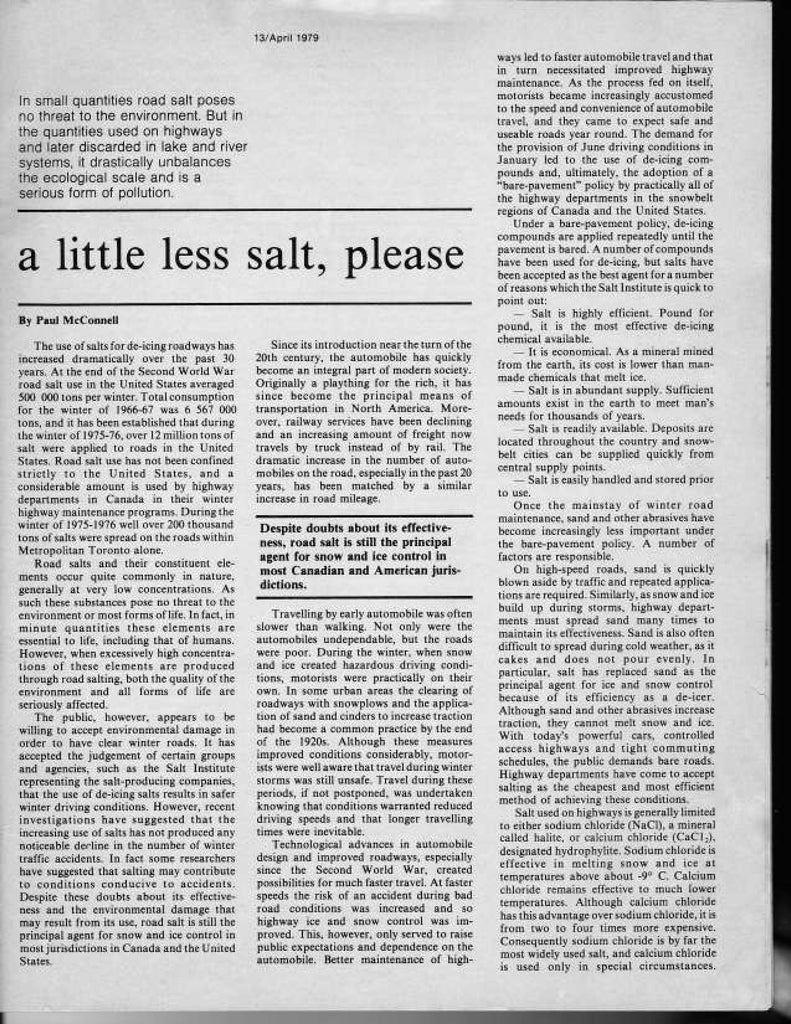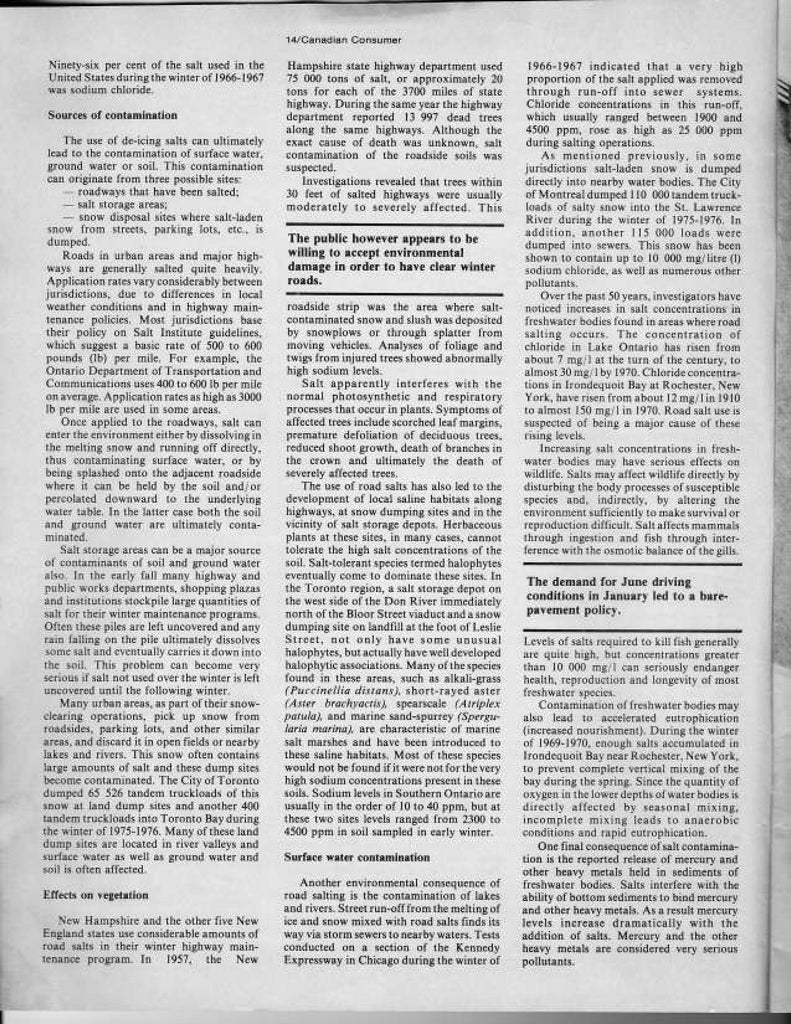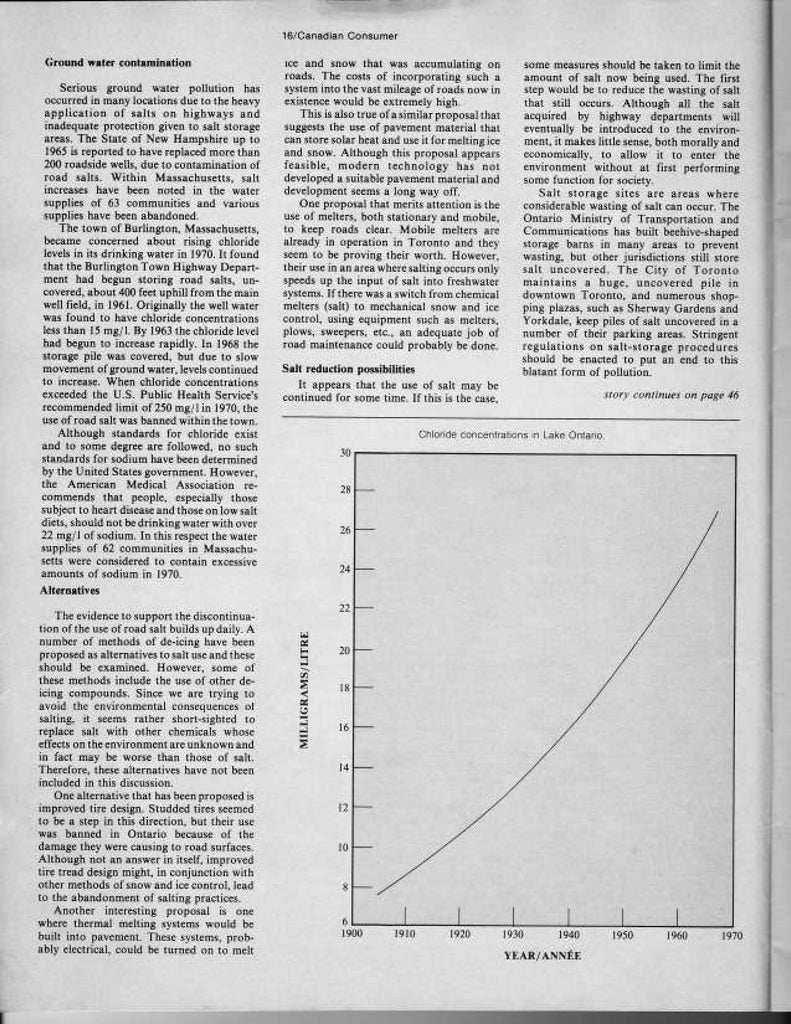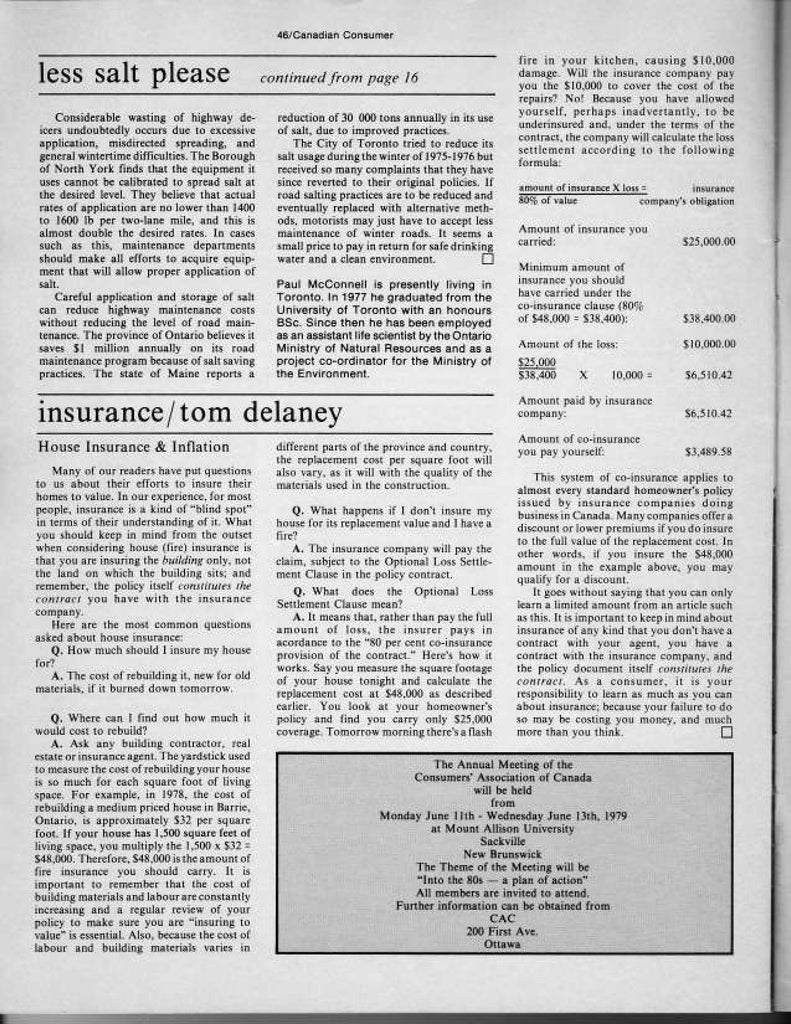
Many Landscaping and Seasonal Maintenance contractors often find themselves in the snow removal industry during the winter months. This may be because many customers also want/need snow removal services, the seasonal nature of landscaping leaves the winter months relatively job free, trucks and other equipment used for landscaping can be converted for snow removal, and/or the lure of profits from snow removal are too large to pass up.
A major tool in the snow contractors arsenal is road salt (Sodium Chloride, NaCl). Often bought in bulk or in bags, this salt is used to melt snow and keep paved areas clear of ice and slippery conditions. It is the cheapest and most effective de-icing method available.
The following article (a little less salt, please) was published in 1979 in Canadian Consumer. It brings forward many of the issues associated with road salt usage and suggests some ways to try and rein in the seemingly uncontrolled usage of the environmentally damaging substance. We would like to summarize how salt usage has changed since the article was published, and what remains the same.




When comparing salt usage from when this article was published, we see little difference in amount of salt applied in Toronto: Toronto Winter Salt Usage 1975-76 – 200 000 tonnes, Toronto Winter Salt Usage 2014-15 – 210 000 tonnes (~10 million dollars). But there has been a shift in attitude towards how to safely and most effectively store and apply road salt to limit environmental and infrastructural damage. In 2001, Environment Canada released a report stating that road salts were entering and increasing in concentration urban watersheds at an alarming rate. In response to this, The City of Toronto began a Salt Management Plan: (https://www1.toronto.ca/city_of_toronto/transportation_services/snow_management/files/pdf/02smp.pdf)
Some of the major impacts of this plan were:
- Requiring all salt depot yards to be covered to reduce runoff
- Annual inspections of salt storage sites
- Installation of pavement temperature sensors to reduce unneeded use
- Introducing newer more accurate salt spreaders
- The use of alternative de-icing methods
The environmental impact of road salt are well documented, however, alternative de-icing methods are often costly and not as effective. Arguments reached a boiling point in 2001 when Environment Canada tried to have Road Salt placed on a schedule of toxic substances under the Canadian Environmental Protection Act. This act was denied however, most likely due to lobbying of salt companies (see also, http://www.thestar.com/news/gta/2008/03/02/cheap_salt_outweighs_green_concerns.html)
Even though road salt is still the major player in the snow business, there are some new players to the de-icing game. The City of Toronto is now using a brine solution prior to snowfalls as well as using a sugar beet derivative in extreme temperatures (Road Salt is only effective to -9˚ C). (see http://www.thestar.com/news/gta/2008/03/02/cheap_salt_outweighs_green_concerns.html)
Unfortunately, there is one thing that has not changed since this article was published, public attitude towards winter driving and pedestrian travel. For some reason, the general public seems to think that their quality of life should not be inconvenienced by winter weather. The ‘demand for June driving in January’ has led to what is known as a ‘Black Pavement Policy,’ where commercial and residential properties want and are expected to have bare pavement at all times throughout the year. The recent rise in negligence lawsuits for slip and fall accidents have many businesses and homeowners scared, leading to impractical expectations and unwarranted de-icing practices. As stated in the article above, ‘the public appears to be willing to accept environmental damage in order to have clear winter roads.’ Until the realization that we live in a quarterly winter climate occurs, the general public properly prepares themselves for this, and the rejection of this feeling of entitlement for perfectly convenient living at all times happens, we will continue to overuse road salts and the environment will continue to suffer.
Leave a comment